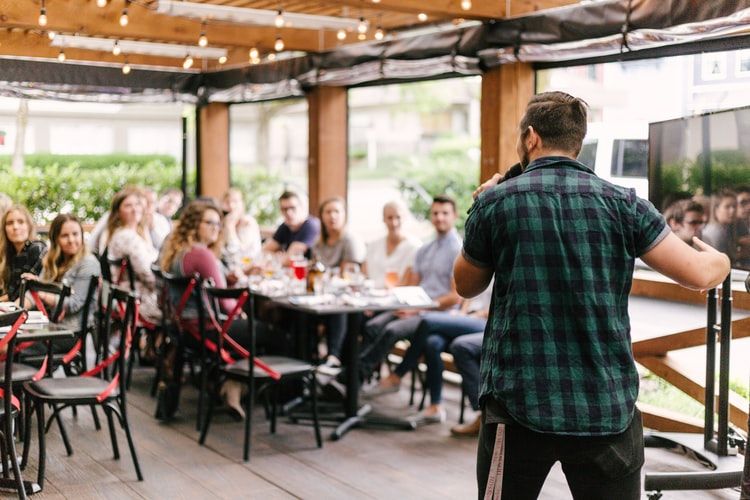
Climbing on to the stage, having the spotlight on you, and engaging the crowd in an entertaining and captivating manner is what the job of a master of ceremonies entails. This is not an easy job and requires patience, creativity, and charm to woo the crowd and keep the people engaged for long intervals of time. Often people go on the stage and are taken over by stage fright, which results in them forgetting all of their prior practices, and they end up bombing.
To avoid such situations and give you access to crowd control, we have compiled a list of things that will help in making you a great emcee of the night.
What is an Emcee
An Emcee or MC is the person who is responsible for mastering an event, letting it sail smoothly, and making sure it offers what the organizers have intended. A master of ceremonies has a long list of responsibilities under their belt, and it keeps changing according to the type of event they are hosting. Whether it is a bridal event, music concert, or a corporate event, the emcee sets the tone and makes sure the event follows a specific pattern and yields desired results, while keeping the crowd entertained.
Plan an Adequate event opening
The phrase “first impression is the last impression” is very relevant in event openings. When people come to an event, they are already irritated and looking to leave the first chance they get. As a good emcee, your job is to provide them with adequate reasons to stay. In order to have such an influence on people, you must be enthusiastic and confident about what you are doing.
Keep breathing
When you find yourself overwhelmed with responsibilities, you get nervous and anxious. Getting on a stage in front of a large number of people has the same effect on people. The best thing to do in that situation is to breathe in and out deeply to calm your nerves. Not letting your nervousness spoil your performance, you must make sure that you are on par with your breathing pattern. One of the best ways to overcome anxiety and nervousness is through personality development programs, personality development training will help you to achieve your goal effectively.
Read More: Why Do Most of the People have a fear of public speaking and how to overcome them.

Bring in concrete and dynamic vibes
When you bring a dynamic and amusing vibe to the stage, the speakers you introduce tend also to partake, making the whole event harmonious and energetic. When the event begins and follows through with such a high amount of enthusiasm, it is bound to conclude with a bang.
When you get on the stage, you are essentially the vessel through which the crowd wants to have their emotions relayed. If you are energetic and confident in your abilities, the audience will be vibing with you, and if you are nervous and nonchalant, the audience will feel the same way.
Constrain the timing of the event
As an emcee, you need to have excellent time management skills because most of the time, you would be working under a specific timeline. While you would be informed by the stage supervisor about the schedule, as an emcee, you would have the final say over what comes next. Therefore, it is essential to make sure you are punctual with your schedule. If you happen to overrun one section, try maintaining it in another. Eventually, an emcee is responsible for concluding the event on time without excluding any section.
Practice
Practice before every event and make sure you have aced the script. When you have mastered the script, you have the option to go off the rail during the event and catch on to the script later. And it could only be achieved with rigorous practice and public speaking courses.
Dress for the event
What you wear and how you carry it exhibits how you are from the inside and whether you will be able to run the show. Make sure you dress for the occasion and style yourself accordingly.
Pay attention to your audience, identify the signals they reveal, and then work on those cues to develop a connection with your audience. Remember, how you react on stage to your emotions decides where your event is headed.
